Hello all!! This is a blog where I'll be posting updates from the world of science, everything from newly discovered isoptopes, to moon teloscopes, to the importance of biodiversity. Everyone is welcome, and I hope you can stay! started 10th of March, 2022. she/her, minor.
Don't wanna be here? Send us removal request.
Text
Thinking about the trans lichenologist who, while still mostly closeted and publishing under her dead name, thanked herself under her chosen name in the acknowledgements of a scientific paper.
14K notes
·
View notes
Text
"ingredients you can pronounce!!!" actually i'm great at phonics and i love eating chemicals
136K notes
·
View notes
Text
The Ancestor of the Octopus (maybe)
The discovery of an ancient cephalopod fossil could be about to rewrite octopus history.
Finding properly fossilised octopus fossils is difficult, due to the animal’s climate and soft, fleshy body. Enter Syllipsimopodi bideni, a ten armed, 330 million year old octopus fossil that was donated to the Ontario Museum in 1988. And with scientists recently taking a closer look, some have suggested that it is a vampyropod, a type of cephalopod, and one of the few of its kind, as they told Nature Communications on March 8. If these scientists are correct, that would make this vampyropod the oldest octopus ancestor by about 80 million years. “This is overturning about 100 years of science in cephalopod evolution,” says invertebrate palaeontologist Christopher Whalen, to Nature Communications.
However, the true identity of the creature hinges on whether or not it has a gladius, named after the Roman Sword of the same name. The gladius is a hard internal body part identified by its slender growth lines along the fossil’s edge. But not every scientist believes there to be a gladius at all.

“That’s not the gladius, I’m sorry,” says Christian Klug, a cephalopod palaeontologist at the University of Zurich, to Nature Communications. Some, like Mr Klug, are arguing that the ‘gladius’ is really just a series of chambers found in shells of earlier cephalopods. This sort of debate is apparently the norm in palaeontology circles. The specific identifications of body parts, organs and bones can alter drastically even depending from the angle you look at the specimen from. But that doesn’t mean that the identification process is all over the place. Palaeontologists need a firm grasp on subjects like zoology, botany, anatomy, and even geology to do what they do, as well a deep understanding of the fossilisation process. Yet even in perfectly preserved fossils and specimens, observed by top notch palaeontologists, there may be differences in how they are interpreted. Some scientists may choose more technical methods, some may choose to focus on more specific parts of the fossilised creature. The validity of the determination ultimately relies on how reasonable it is, given the science.
But in the case of S.bideni here, the discovery of more specimens, advanced technology, and more research being put into their findings and identification could lead to scientists getting the right answer.
Source:
https://www.sciencenews.org/article/fossil-octopus-cephalopod-ancestor-10-arms-debate-identity
#science#science gossip#science updates#palaeontology#palaeontologist#palaeontologists#stem#octopus#fossil#fossils
10 notes
·
View notes
Quote
...A fuller appreciation for flowers can be gained by learning about the reasons behind their beauty, the ecological role they perform in the environment, their methods of achieving reproduction, and their importance to wildlife and people.
Carol Gracie, Florapedia, 2021
#stem#science#science gossip#science books#scientific books#botany#biology#bio#wildlife#wildlife books#flowers#flower#women in stem#books#book#quote
7 notes
·
View notes
Text
Women In Stem: Wang Zhenyi
Wang Zhenyi was born in 1768, in Qing dynasty China. Due to the feudal system in place during her lifetime, it was the generally accepted idea that a woman’s place was in the home, raising and giving birth to children. Women were not meant to ‘bother themselves’ with studies and education, but luckily for Wang Zhenyi, she was born into a family that deeply valued education for all.
Her father taught her mathematics, medicine and geography, her grandfather taught her astronomy, and her grandmother even taught her poetry! She began teaching herself mathematics and astronomy more in depth by the age of sixteen, and published multiple books - up to twelve- in her lifetime, some regarding her own research, some regarding the research of others, often simplified for the general public and beginners.
In these books she wrote about her commentaries on Pythagoras’ Theorem, solar and lunar eclipses, the Chinese calendar, and simplified methods of multiplication and division.
She is possibly most well known for her experiment on eclipses. While considered mysterious and beautiful, no one really knew how they worked. Wang Zhenyi posed her own simple experiment, where she used a flat round table as the ‘earth,’ and strung up a lamp as the ‘sun,’ and mirror as the ‘moon.’
She used this experiment to prove her theories on eclipies, believing that the moon blocks our view of the sun, or the earth blocks the sun’s light from reaching the moon. She later published these theories in her books.
Unfortunately, many of her works and experiments have been lost to time, so we do not know as much about this incredible woman as we may have had her writing lasted longer. None of this is helped by the fact that she died young, aged only twenty nine.
Still, we can clearly conclude that Wang Zhenyi was a prolific scientists who introduced and studied many important theories we still use and learn of today.
Trivia!!
She was a prolific archer + horseback rider
She wrote many poems in her life, often about the political climate in China
She travelled all over China in her lifetime
She had developed her own theories on gravity

Sources:
Women in Science: 50 Fearless Pioneers Who Changed The World, by Rachel Ignotofsky.
https://massivesci.com/articles/wang-zhenyi-poetry-venus-math/
https://scientificwomen.net/women/zhenyi-wang-98
8 notes
·
View notes
Photo
A little late but very true!!
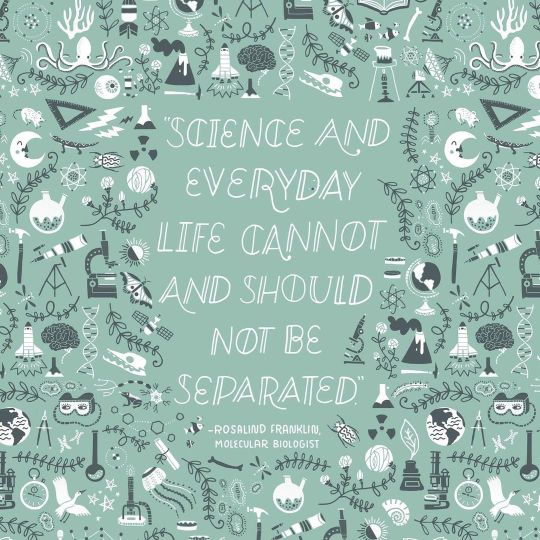
Words of wisdom for women’s history month. ❤️📚🔬🎨🏆 Quotes available as desktop backgrounds in the free download section of my website ( link in bio) . . . . #freedownload #scicomm #womeninscience #womeninart #womeninsports #womenshistorymonth https://www.instagram.com/p/Ca0lwU9vTOS/?utm_medium=tumblr
27 notes
·
View notes
Text
science gossip (the original :)
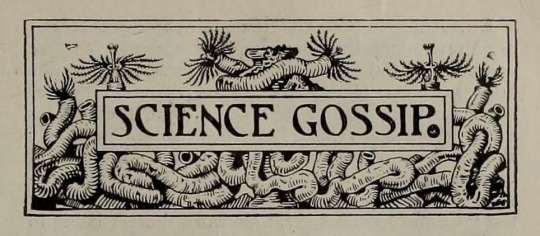
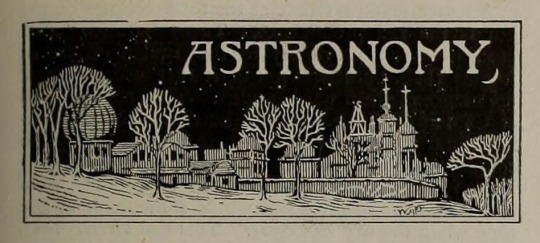
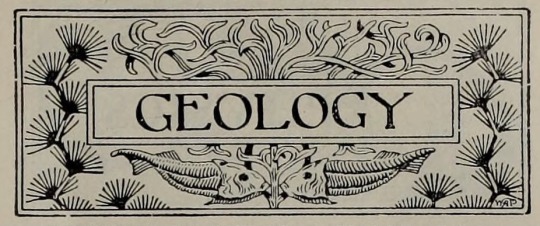
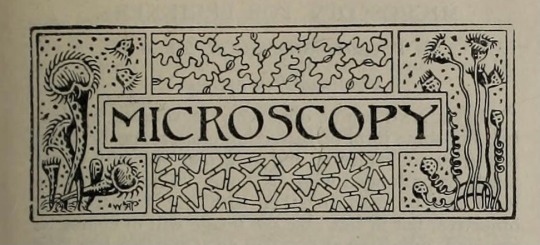

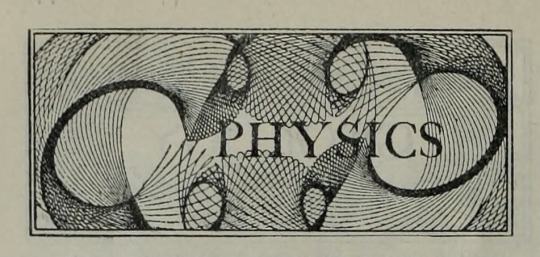
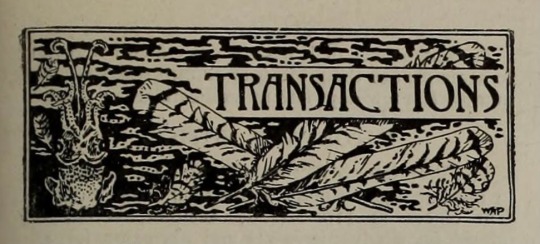

subtitles from Science Gossip, 1900
66K notes
·
View notes
Text
Some Botanical (and biological) Book Recs
A collection of some personal recommendations of mine for books that are related to botany, or perhaps just some form of wildlife.
Florapedia, by Carol Gracie: This book contains all sorts of treasures, full of valuable teachings from the more scientific aspects of botany, as well as little bios about botanists of the past, profiles on strange plants you might never hear of anywhere else, and the cultural heritage and importance of different plants to different people.
Plants - From Roots to Riches, by Kathy Willis and Carolyn Fry: This book focuses on the evolution of botany as a study, and how plants have changed the way our world works, as well as how we have changed the world of plants. It covers a broad range of ideas, theories and points in different chapters, such DNA analysis, the importance of preservation and biodiversity, and the economic side of the plant kingdom.
How Plants Work, by Stephen Blackmore: This book delves deep into the complexities of plants, their evolution and evolutionary context, and how long dead fossilised plants affect our knowledge of the plant world today. Each part of the book focuses on a certain part of the plant, roots, stem, etc, allowing an in depth study of plants and how they evolve. Also writes of how these parts and plants are altered by region, habitat, and how they survive and adapt in new climates.
Metazoa, by Peter Godfrey-Smith: A book on human consciousness and how it extends to animals and the wildlife around us. It talks of evolution in people, particularly in the mind, as well as where and how that affects our world. Can get a bit philosophical.
Goodreads links for you to check out yourself!
https://www.goodreads.com/book/show/55271785-florapedia?ac=1&from_search=true&qid=yCDoLF5BBz&rank=1
https://www.goodreads.com/book/show/23272432-plants?ac=1&from_search=true&qid=Mkby7TGYIE&rank=1
https://www.goodreads.com/book/show/39204064-how-plants-work?ac=1&from_search=true&qid=4mHwszibow&rank=4
https://www.goodreads.com/book/show/50403455-metazoa?ac=1&from_search=true&qid=1dUVUmhrLu&rank=1
#stem#science#science gossip#science books#scientific books#scienctific#botany#botanical#botanical books#bio#biology#biology books#wildlife#wildlife books#books#non fiction#goodreads
15 notes
·
View notes
Text
A Note On The Name
So, this blog is called Science Gossip. Obviously.
I got the name from the Science magazine under the same name that ran in two parts, one from 1865-1893, and then from 1894-1902. The first series of the magazine was actually called Hardwicke’s Science Gossip, but still pretty close.
As the name suggests, it was a magazine that mostly focused on the happenings in science at the time, as is this blog :)
https://archive.org/details/sciencegossip6691900lond link to an archived version of an edition of Science Gossip from 1900 :)
2 notes
·
View notes
Text
An Intro To Science Gossip
hello and welcome!! On this blog I’m planning to post quick updates about the news, happenings, and important events taking place in science. I mean for my posts to be as short and concise as possible, and contain as accurate info as possible. I’ll be covering basically all topics under the sun, but definitely expect lots of botanical and generally wildlife related content.
There will be some reblogs from posts other people have made, but that won’t be all :)
If you have any requests for me to talk about something specific, especially about women in stem and BIPOC in stem, send them through!
6 notes
·
View notes